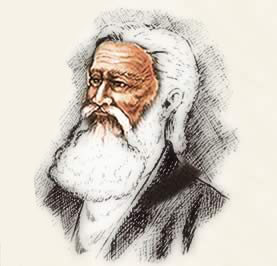Rahman the Sheikh?Rahman’s diwan itself provides the best evidence to disprove Andreyev’s view that the “highly illiterate Pashtun tribal society …..lay far away from the centres of Muslim scholarship and was not directly influenced by sophisticated intellectual traditions.”Rahman’s diwan displays a subtle use of several languages including Pushtu, Arabic and Persian, as well as a wide knowledge of history, philosophy and theology. Particularly relevant to this study is the certainty that Rahman must have been trained in both fiqa (jurisprudence ) and tasawwuf (sufism) to have been capable of writing as he did. Though apparently at odds with each other, the teaching of both disciplines may have been the norm during his era, and it is recorded that other poets like Sadi (d.1292 A.D.) had received both. Rahman would not have had to have gone far to get this training, as Peshawar was starting to gain a reputation as a centre for religious learning that was later to make it a rival to Bokhara. Pata Khazana claims that Rahman’s teacher was known to have been Mullah Mohammed Yusafzai. Rahman was anything but the uneducated Mullah that Aqab claims him to have been. Rather than suffering from too little education, Rahman complains that “learning drove me mad.” His thorough education is in keeping with Lewis’ view that “Sufism is essentially the work of sophisticated and highly literate urban men of learning.” There can be no doubt that Rahman was a practicing Sufi, but was he attached to a particular order, either as a murid (follower) or a sheikh? Practitioners of Sufism were known by their patched cloak, which Hujwiri describes as the ‘bondage of aspirants to Sufism.’ Likely from personal experience Rahman complains of the “service of the Fakir’s cloak,” and of the need to “ wash the bluish cloak.”. Although Rahman calls himself a Sheikh, it seems unlikely that he ever performed in this role, or that he was associated with any particular order. A tradition states that a guide is needed for training in tasawwuf. Perhaps in response to this need, various unfounded theories have been made about who Rahman’s guide may have been, and to which order he was attached. Sabir suggests that Rahman had a Naqshabandi initiation in Kohat, as well as training from the sons of Pir Baba. Schimmel casually assigns Rahman to the Chishti order perhaps basing this on Raverty’s incorrect assumption that Sufis practicing musical sam? were Chishti by default. Aqab, himself of the Qadiri order, claims Rahman was a Qadiri. There is no overwhelming evidence to prove any of these claims. If Rahman had been a member of one of the Sufi orders, modern followers of that group would no doubt claim him as one of their own. Such is not the case. It is more likely that Rahman was independent, with an individualistic practice of Sufism similar to that of Shah Abdul Latif in the Sind. It is even possible that he was a uwaysi after the pattern of Pir Roshan, as is hinted at in several lines: “Those who have perfect intention of heart are guided without the guidance of a Pir” and “On the path which I travel to see my love, make holy Khizer and Ilyas my guides.” |

Rahman in CrisisThe reverence with which Rahman is honoured by Pushtuns today is no reflection of how he may have been regarded during his lifetime. The issue was Rahman’s neglect of the outward practices of Islam. There is a popular tradition that is still held by some Pushtuns, that Rahman’s pursuit of God outside the mosque led to confrontation with the established religious hierarchy. His quest for God made him a solitary mystic with little interest in formal religion. Hughes records that in 1883 one old man still knew the tree under which the villagers said Rahman used to sit and compose his poems. Rahman relates his dereliction of duty this way:"Ever since I took up the work of love in my hands, I have withdrawn from any other work. " "If this is not the passion of love, then what is it? Otherwise who would bandon their customs? " Other lines from the diwan suggest that Rahman’s activities might have further inflamed the village Mullahs: "I got nothing from being a sheikh or from my righteousness. " "From now on it is my turn, to do whatever I can at the tavern. " "I washed my hands of piety when the musician picked up the rebab. " Though no date is given for confrontation with the religious establishment, D 242 points to Rahman’s clear choice to no longer sit under the Tooba tree and instead to pursue tasawwuf with reckless abandon: "Rather than the unacceptable worship of the hypocrite, I prefer to be drunk on Saqi’s wine. " "Whether knowledge, rosary or recitation, I am happier asleep than awake with these. " "I don’t like the Tooba tree’s shade, but prefer to be burnt like a kebab in the flames of your face. " Kamil suggests that “Rahman Baba reached such a profound abandonment to God, that he also abandoned all religious and worldly duties”. Afghani states that Rahman not only left the mosque, but that a kufr fatwa (death sentence for apostasy) was passed on him by the local mullahs. Raverty reports that he was later reconciled back into the community. Again, there are no written records to corroborate these events, but there is some evidence from the diwan that suggests that the tension may have been peacefully resolved: "I couldn’t find peace in my search for him. It became unlawful for me to be careless in my religion. " |
